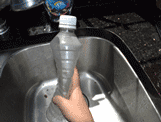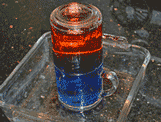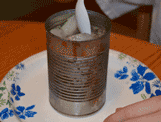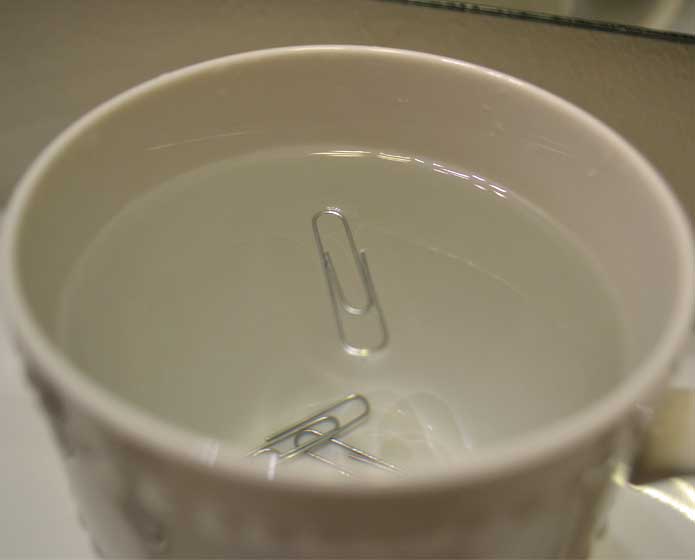
1
DifficultyWater Surface Tension Experiment
Experiment to Teach Kids about Water Surface Tension
Posted by Admin / in Matter Experiments
Water has a property we see everyday, but may not know it is there until it is pointed out. It is called water surface tension. If you have ever watched bugs appear to skate on top the surface of the water, they are using water surface tension to move across the water without sinking. Try this surface tension experiment to help to understand why.
Materials Needed
- Small paperclip, Size # 1 (about 1.25" long (3.2 cm))
- Small bowl or cup
- Water
- Liquid soap
- Mixing spoon, if needed
WATER TENSION EXPERIMENT STEPS
Step 1: Fill up a cup or bowl of water. Plain tap water works great.
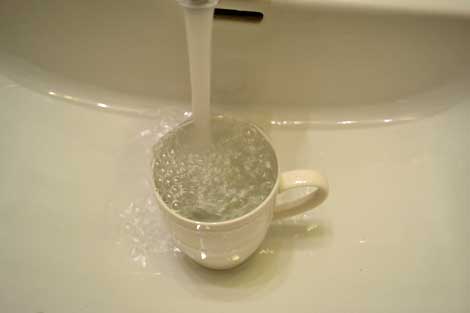
Step 2: Take some metal paperclips and drop them into the bottom of the water to demonstrate how metal paperclips have a density greater than water so they sink.
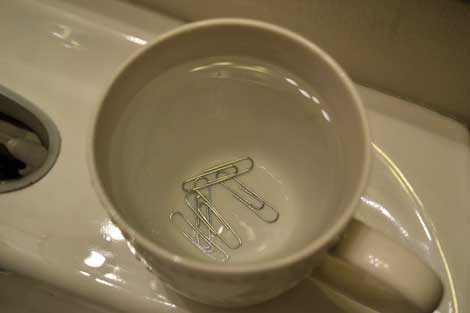
Show how metal paperclips sink in water
Step 3: Carefully place a metal paperclip on the surface of the water. Use a #1 paperclip (they work the best).
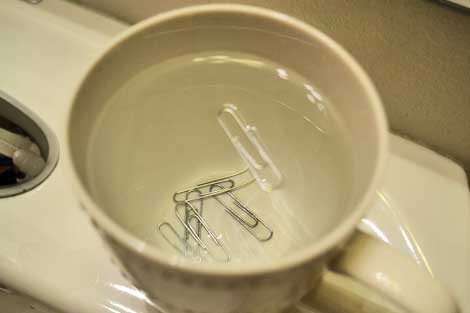
Carefully place the paperclip on the water surface
Step 4: Show the kids how the paperclip now magically floats on the surface of the water.
Step 5: Shake the cup/bowl of water to show that the paperclip is the same as the others and let them see it sinks.
Step 6: Make another paperclip float on the water surface.
Step 7: Now add some liquid soap to the water where the paperclip is floating. What happened?
Step 8 (optional): Try to repeat the experiment using liquids other than water. Do you get the same results?
SCIENCE LEARNED
Water has cohesion that pulls the water molecules together. We can see examples of water cohesion in nature. Water droplets form to make rain. If you pour water over a car windshield it groups together to form drops and streams of water. Water joins together to form streams, rivers and oceans. Water in soil helps that soil stick together so if you dig a hole, it stands up for a while. If soil did not have cohesion then everytime the wind blew hard, it would result in dust storm. Without the cohesive forces of water our world would be much different.
In the experiment we start with showing the kids that paperclips are heavier than water and they sink right to the bottom. When they are carefully placed at the water surface, however, the paperclips float. There is an added force at the surface of the water that is not present under the surface of the water. It is called surface tension. The surface tension is in fact the cohesion of the water pulling it together. Since all of the water is below the surface and their is no water above it there is internal pressure created in the water at the surface. This acts like a skin that helps the paperclip float on the water surface.
What happened when the soap was added? Why did the paperclip suddenly sink? Simple. The soap reduce the cohesion force in the water, resulting removing the "skin" from the water surface.

